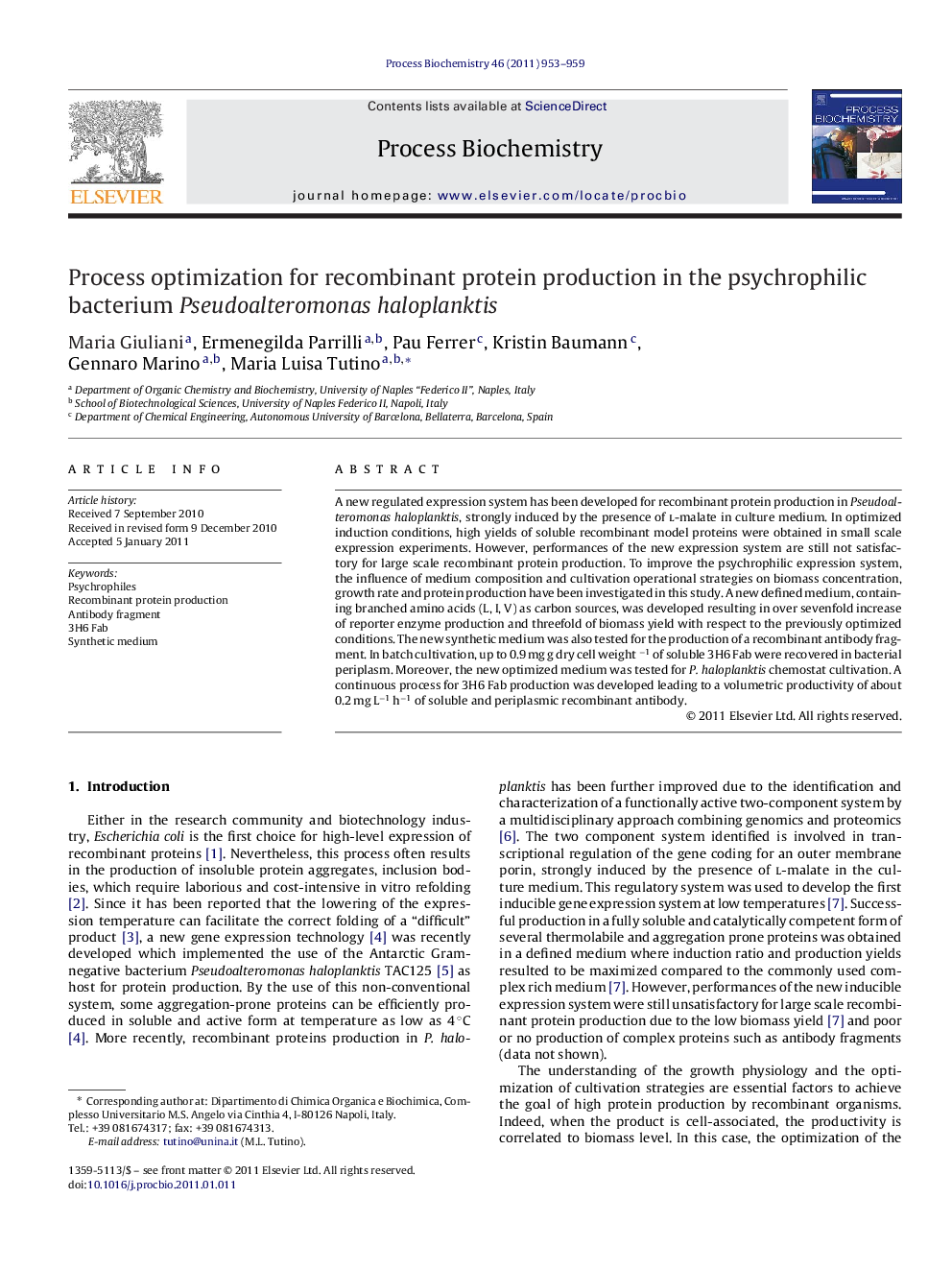| Article ID | Journal | Published Year | Pages | File Type |
|---|---|---|---|---|
| 34883 | Process Biochemistry | 2011 | 7 Pages |
A new regulated expression system has been developed for recombinant protein production in Pseudoalteromonas haloplanktis, strongly induced by the presence of l-malate in culture medium. In optimized induction conditions, high yields of soluble recombinant model proteins were obtained in small scale expression experiments. However, performances of the new expression system are still not satisfactory for large scale recombinant protein production. To improve the psychrophilic expression system, the influence of medium composition and cultivation operational strategies on biomass concentration, growth rate and protein production have been investigated in this study. A new defined medium, containing branched amino acids (L, I, V) as carbon sources, was developed resulting in over sevenfold increase of reporter enzyme production and threefold of biomass yield with respect to the previously optimized conditions. The new synthetic medium was also tested for the production of a recombinant antibody fragment. In batch cultivation, up to 0.9 mg g dry cell weight −1 of soluble 3H6 Fab were recovered in bacterial periplasm. Moreover, the new optimized medium was tested for P. haloplanktis chemostat cultivation. A continuous process for 3H6 Fab production was developed leading to a volumetric productivity of about 0.2 mg L−1 h−1 of soluble and periplasmic recombinant antibody.
